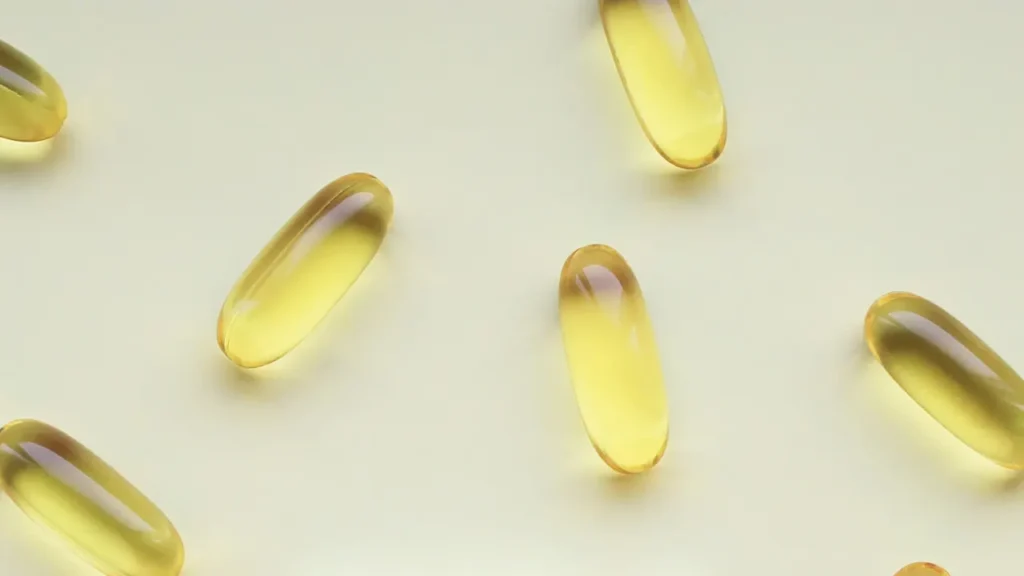The investigation of natural supplements has accelerated significantly in the field of cognitive enhancement. Tung seed stands out among these because of its alleged nootropic advantages, which include improved cognition, alertness, and attention. This page explores the nature of tung seed, its health advantages, ideal dosage, adverse effects, possible substance interactions, and recommendations for responsible use grounded in scientific facts and chemical understanding.
You May Also Like:
Five Great Reasons to Try a Nootropic Mushroom Supplement
5 Things to Consider When Choosing the Best Mushrooms for Mental Health
Tung Seed: Benefits, Dosage, Side Effects, Drug Interactions, and Other Important Information is an original (NootropicsPlanet) article.
Nature of Tung Seed
Growing on the Tung tree (Vernicia fordii), tung seed is an integral part of many traditional activities and has been used for industrial and therapeutic purposes. This tree thrives in moderate conditions and is endemic to southern China, Vietnam, and some regions of India. In the past, tung seeds were mainly used to extract tung oil, a drying oil highly prized in paints, varnishes, and waterproofing materials. Parts of the Tung tree, notably the seeds, have been utilized in traditional medicine for their supposed medicinal properties, including treating inflammation, skin disorders, and laxative effects.
The tung tree is a deciduous tree with broad, simple leaves and beautiful pink to purple blossoms. It can reach a height of up to 20 meters. The main attraction for agricultural and commercial interest has been the seed oil protected by a hard shell.
Health Benefits of Tung Seed
The exploration into the health benefits of Tung seed is inspired by its unique composition of fatty acids, antioxidants, and other phytochemicals, which suggest a range of potential therapeutic effects. Key areas of interest include:
- Neuroprotection: The α-eleostearic acid in Tung seed has been particularly interesting for its potential neuroprotective effects. These effects could be due to its ability to modulate oxidative stress and inflammation within the brain, both of which are implicated in neurodegenerative diseases like Alzheimer’s and Parkinson’s. The antioxidant properties of Tung seed can neutralize free radicals, protecting neurons from damage.
- Cognitive Enhancement: There is growing interest in the nootropic effects of Tung seed, including improved cognition, memory, and focus. While direct evidence from human studies is sparse, the biochemical properties of the seed suggest it could support brain health and function, possibly by enhancing neuronal communication and protecting against age-related cognitive decline.
- Anti-inflammatory Effects: The fatty acids in Tung seed, particularly α-eleostearic acid, may exert anti-inflammatory effects. Chronic inflammation is a risk factor for many diseases, including those affecting the brain and cognitive function. By reducing inflammation, Tung seed could offer benefits beyond neuroprotection, including general health and well-being, by reducing inflammation.
- Cardiovascular Health: Though not directly related to its nootropic properties, the fatty acid profile of Tung seed might also contribute to cardiovascular health. Omega-3 fatty acids and similar compounds can improve heart health by lowering triglycerides, reducing blood pressure, and decreasing the risk of heart disease.

Chemistry of Tung Seed
Tung seeds contain a wide range of phytochemicals; nonetheless, their distinctive fatty acid content is one of their most noteworthy phytochemicals. The oil derived from tung seeds differs from most other vegetable oils due to its high content of α-eleostearic acid, a conjugated trienoic fatty acid. This acid is believed to play a role in the seed’s anti-inflammatory and maybe neuroprotective properties. Tung oil has a complex biochemical profile due to the presence of oleic acid, palmitic acid, and linoleic acid in addition to α-eleostearic acid.
The presence of these fatty acids in Tung seeds suggests a potential impact on brain health, given the critical role of fatty acids in maintaining neuronal membrane integrity, fluidity, and function. These compounds are essential for forming cell membranes, including those of neurons, and play a role in modulating inflammation and oxidative stress within the brain.
Additionally, Tung seeds may contain other phytochemicals with antioxidant properties, further supporting their potential health benefits. Antioxidants can neutralize free radicals, reducing oxidative stress, a mechanism linked to various neurodegenerative diseases and cognitive decline.
However, it is essential to note that Tung seeds also contain toxic compounds, which can pose risks if not properly processed or consumed excessively. Tung oil, while industrially valuable, is not fit for human consumption due to its toxic substance content that can cause serious health issues.
Physiological Mechanism of Action
The potential health benefits of Tung seed are underpinned by its complex chemistry, which influences various physiological pathways:
- Modulation of Oxidative Stress and Inflammation: The primary mechanism by which Tung seed could exert neuroprotective and cognitive-enhancing effects is through the modulation of oxidative stress and inflammation. α-Eleostearic acid and other antioxidants in Tung seed can scavenge free radicals, reducing cell oxidative damage. This is crucial for brain health, as oxidative stress plays a significant role in the pathogenesis of neurodegenerative diseases and cognitive decline. Additionally, these compounds can modulate inflammatory pathways, potentially reducing chronic inflammation and its deleterious effects on the brain.
- Impact on Neuronal Membrane Fluidity and Function: The unique fatty acids in Tung seed could influence the fluidity and function of neuronal membranes by integrating into cell membranes. Membrane fluidity is vital for adequately functioning receptors and ion channels, crucial for neurotransmission and neuronal communication. Enhancing membrane fluidity could facilitate better communication between neurons, improving cognitive functions such as memory and focus.
- Regulation of Neurotransmitter Levels: While the direct effects of Tung seed on neurotransmitter levels are not well-documented, the modulation of brain inflammation and oxidative stress could indirectly influence the synthesis, release, and reuptake of neurotransmitters. Balanced neurotransmitter levels are essential for maintaining mood, alertness, and cognitive function.

Optimal Dosage of Tung Seed
Because individual reactions to tung seed supplementation vary widely and there is a paucity of clinical data, it is difficult to determine the ideal dosage. On the other hand, early research and conventional usage advice begin with low dosages and then gradually modify them. It is imperative to consult healthcare professionals to identify the proper dosage depending on each person’s health status and goals.
Side Effects of Tung Seed
Despite its potential benefits, Tung seed can exhibit side effects, mainly when consumed in excess. The primary concern revolves around its content of toxic compounds, such as Tung oil, which can lead to gastrointestinal disturbances, allergic reactions, and, in severe cases, neurotoxicity. Thus, adhering to recommended dosages and being aware of individual tolerance levels is essential.

Potential Substance Interactions with Tung Seed
Owing to the intricate biochemistry of tung seed, there is a chance that it will interact with other drugs and supplements. For example, its effects on fatty acid metabolism may affect how well lipid-lowering medications work. Furthermore, several chemotherapy drugs may interact with the antioxidant qualities. It is advisable to fully comprehend these interactions and practice caution when using them, particularly for people who are taking medication or have underlying medical issues.
Best Responsible Uses of Tung Seed
If you’re interested in using tung seed to improve cognitive function, it’s important to utilize it responsibly. This entails lowering dosages at first, monitoring for side effects, and refraining from long-term usage without a prescription. Pregnant or nursing women, as well as those with pre-existing diseases, should use Tung seeds cautiously due to the possibility of side effects and interactions. Crucially, the quest for Tung seed-based cognitive enhancement should support basic health behaviors like proper diet, regular exercise, and rest, not replace them.
Tung Seed:
Conclusion
Research suggests that consumption of tung seed oil may contribute to various aspects of health and well-being. Furthermore, tung seed oil’s potential as a dietary supplement extends to its role in promoting skin health and enhancing the body’s immune response. Its moisturizing properties make it a valuable ingredient in skincare products, while its ability to modulate immune function may offer benefits in supporting overall health and resilience.
However, while the health benefits of tung seed oil are promising, factors such as sourcing, processing methods, and potential allergic reactions must be considered. Additionally, more research is needed to fully elucidate its mechanisms of action and optimal dosage for specific health conditions. As interest in natural remedies and functional foods grows, tung seed oil emerges as a promising candidate for promoting holistic well-being when used responsibly and with a balanced lifestyle.

References:
- Vernicia fordii. Retrieved from: https://en.wikipedia.org/wiki/Vernicia_fordii
- Tung Tree (Vernicia fordii) Genome Provides A Resource for Understanding Genome Evolution and Improved Oil Production. Retrieved from: https://www.ncbi.nlm.nih.gov/pmc/articles/PMC7212303/
- Proteomic Analysis of Tung Tree (Vernicia fordii) Oilseeds during the Developmental Stages. Retrieved from: https://www.ncbi.nlm.nih.gov/pmc/articles/PMC6273751/
Important Note: The information contained in this article is for general informational purposes only, and should not be construed as health or medical advice, nor is it intended to diagnose, prevent, treat, or cure any disease or health condition. Before embarking on any diet, fitness regimen, or program of nutritional supplementation, it is advisable to consult your healthcare professional in order to determine its safety and probable efficacy in terms of your individual state of health.
Regarding Nutritional Supplements Or Other Non-Prescription Health Products: If any nutritional supplements or other non-prescription health products are mentioned in the foregoing article, any claims or statements made about them have not been evaluated by the U.S. Food and Drug Administration, and such nutritional supplements or other health products are not intended to diagnose, treat, cure, or prevent any disease.


